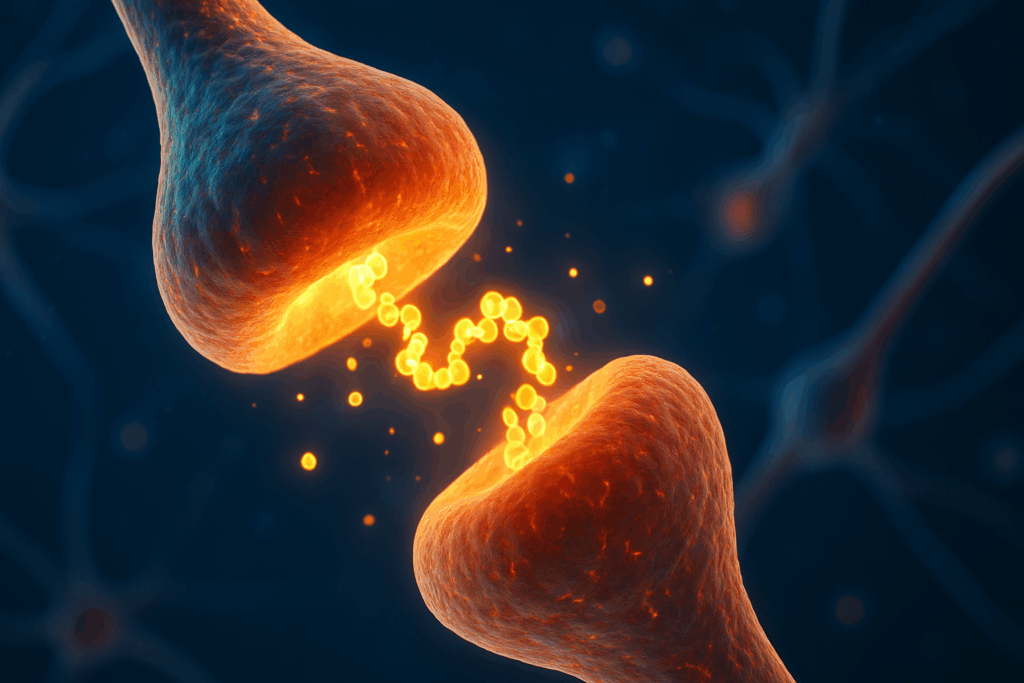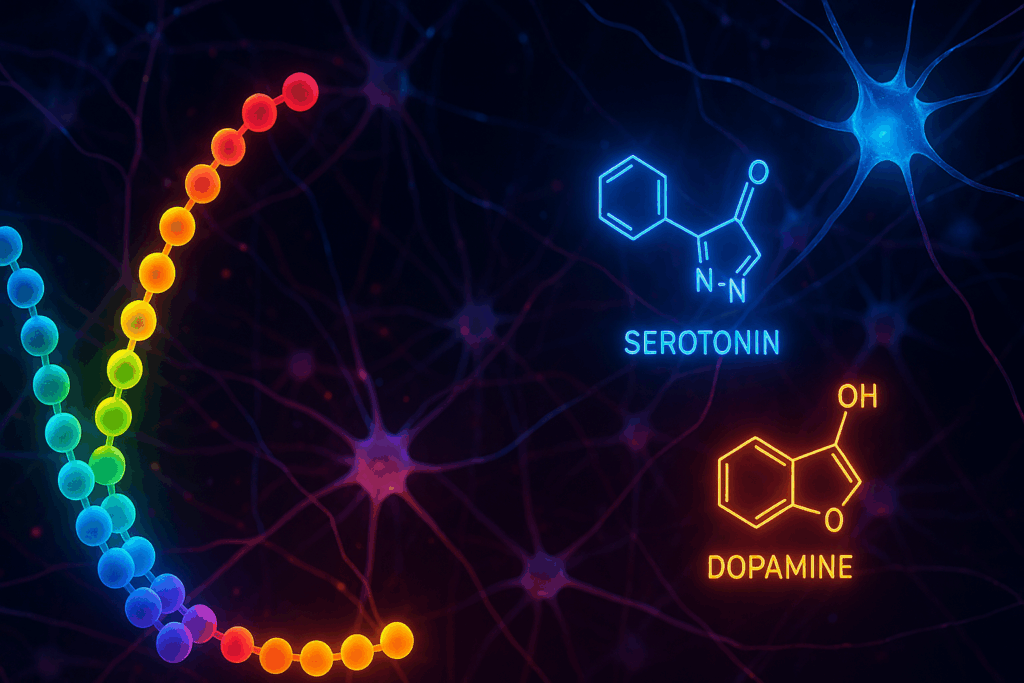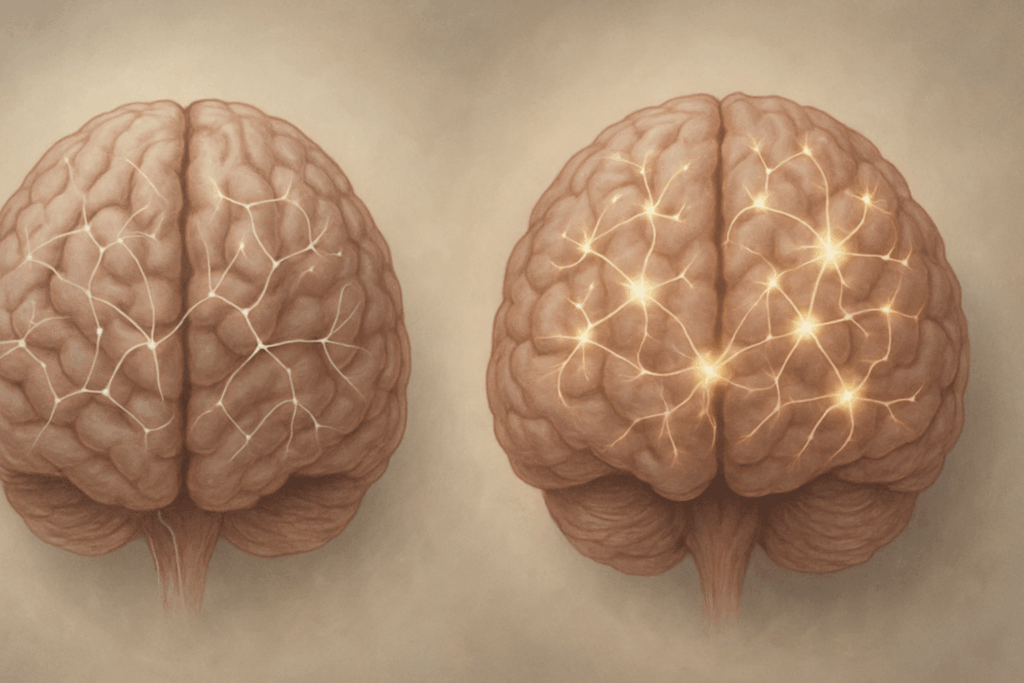Understanding the Critical Role of Protein in Brain Health
Proteins are often celebrated for their role in building muscle and repairing tissues, but their importance in brain function is equally profound. The relationship between protein and brain health is a dynamic and complex one, intricately linked to the creation of neurotransmitters, the chemicals that facilitate communication between nerve cells. Without adequate protein intake, the brain’s ability to produce neurotransmitters like dopamine, serotonin, and norepinephrine is compromised, which can significantly affect mood, memory, focus, and overall cognitive performance. In essence, exploring the connections between protein and brain function provides vital insights into how we can optimize mental clarity and emotional stability through nutritional strategies.
You may also like: How to Choose the Best Brain Supplements for Adults: Science-Backed Ingredients That Support Focus, Memory, and Mental Clarity
Amino acids, the building blocks of proteins, serve as precursors to neurotransmitters. For instance, tryptophan is a precursor to serotonin, a neurotransmitter crucial for mood regulation and sleep. Similarly, tyrosine is a precursor to dopamine and norepinephrine, both of which are involved in motivation, alertness, and the stress response. Thus, ensuring an adequate and balanced protein intake directly supports the brain’s biochemical machinery. In the landscape of cognitive enhancement and mental health, understanding the symbiotic relationship between protein and brain function becomes a powerful tool for enhancing decision-making and optimizing mental performance.
The exploration of protein and brain function extends beyond mere neurotransmitter production. Proteins are also integral to the structure and function of brain cells themselves. Synapses, the sites where nerve impulses pass from one neuron to another, rely on proteins to maintain their architecture and to regulate signal transmission. This underscores why malnutrition or protein deficiencies can manifest as cognitive impairments or mood disorders, further highlighting the necessity of protein for a healthy brain.
Beyond these fundamental roles, current research increasingly points to the ways specific dietary patterns rich in high-quality protein may help mitigate age-related cognitive decline. As we seek methods to sustain mental sharpness and clarity throughout life, delving deeper into the significance of protein and brain health provides a foundation for evidence-based nutritional interventions that support optimal cognitive functioning.

How Protein Influences Neurotransmitters and Cognitive Performance
The biochemical interplay between protein and brain function finds its most direct expression in neurotransmitter synthesis. Each neurotransmitter associated with mood regulation, focus, and cognitive energy originates from specific amino acids obtained through dietary protein. This biochemical reality bridges the gap between what we eat and how we think, feel, and perform mentally. Without sufficient protein intake, the pool of available amino acids diminishes, impairing neurotransmitter production and, consequently, cognitive performance.
For example, a deficiency in tryptophan can result in lower serotonin levels, leading to symptoms such as depression, irritability, and sleep disturbances. Similarly, inadequate tyrosine levels can impair dopamine synthesis, leading to decreased motivation, poor attention, and cognitive sluggishness. These examples underscore the practical significance of maintaining a diet rich in diverse, high-quality proteins to support robust neurotransmitter production and, by extension, optimal cognitive functioning.
Interestingly, the influence of protein on neurotransmitters also extends to stress resilience and executive function. High levels of norepinephrine, derived from tyrosine, enhance focus and vigilance, especially in high-stress situations. This suggests that dietary protein may not only support baseline cognitive performance but may also bolster the brain’s capacity to respond adaptively to cognitive demands and environmental challenges.
Clinical studies have reinforced these insights, showing that protein supplementation can improve attention, reaction time, and memory in both healthy individuals and those experiencing cognitive decline. These findings have profound implications for anyone seeking to enhance decision-making skills and maintain cognitive agility across the lifespan. By strategically leveraging the powerful connection between protein and brain health, individuals can empower themselves with one of the most accessible cognitive optimization tools available: their diet.
Protein Intake and Brain Development Across the Lifespan
The impact of protein on brain function is not confined to adulthood. Protein plays a crucial role in brain development from the earliest stages of life, influencing cognitive potential and resilience throughout the lifespan. During prenatal development, maternal protein intake significantly affects the formation of the fetal brain, including the proliferation and differentiation of neural stem cells. Insufficient protein intake during pregnancy has been linked to neurodevelopmental disorders, underscoring the foundational role of protein and brain health even before birth.
In childhood, adequate protein intake supports critical periods of brain growth and synaptic pruning, processes that refine neural networks for optimal cognitive function. Children with protein malnutrition often exhibit delayed cognitive development, impaired memory, and difficulties with executive functions such as planning and problem-solving. This highlights the irreplaceable role of dietary protein in supporting educational achievement and emotional regulation during formative years.
The importance of protein persists into adolescence, a time characterized by profound brain remodeling and increased cognitive demands. Adolescents require sufficient protein to support the maturation of the prefrontal cortex, the brain region responsible for judgment, impulse control, and complex decision-making. Neglecting protein needs during this critical window can have lasting impacts on academic performance, emotional resilience, and mental health.
In adulthood, maintaining adequate protein intake continues to be essential for sustaining cognitive performance, managing stress, and preventing neurodegenerative diseases. Emerging research suggests that higher protein consumption may protect against age-related cognitive decline, possibly by preserving muscle mass, supporting metabolic health, and maintaining neurotransmitter balance. Thus, at every stage of life, protein remains a central pillar of cognitive health and brain function.

Legal Nootropics: Enhancing Cognitive Function with Safe Supplements
As interest in cognitive enhancement grows, legal nootropics have emerged as promising tools to support focus, memory, and mental clarity. Legal nootropics, often derived from natural substances, aim to improve brain function without the risks associated with illicit or prescription-only cognitive enhancers. Understanding how protein and brain health intersect with the use of legal nootropics adds a fascinating layer to strategies for optimizing mental performance.
Many legal nootropics work by modulating neurotransmitter levels, enhancing blood flow to the brain, or supporting neuroplasticity. For instance, compounds like L-theanine, Bacopa monnieri, and Rhodiola rosea are renowned for their ability to enhance cognitive function while minimizing side effects. Notably, some nootropics, such as acetyl-L-carnitine and alpha-GPC, are themselves amino acid derivatives or cholinergic agents that directly intersect with the biochemical pathways supported by dietary protein.
The synergy between protein and brain function becomes even more apparent when considering that nootropics often require sufficient amino acid availability to be fully effective. For example, supplements that promote dopamine synthesis will be less effective if dietary tyrosine is insufficient. Thus, ensuring optimal protein intake can amplify the benefits of nootropics, providing a nutritional foundation for their cognitive-enhancing effects.
Moreover, legal nootropics can serve as valuable adjuncts to lifestyle-based cognitive enhancement strategies, offering additional support for individuals facing high cognitive demands, chronic stress, or mild cognitive impairments. When chosen carefully and used responsibly, legal nootropics represent an evidence-based, accessible avenue for supporting brain health and optimizing decision-making capacity in daily life.
Medications for ADHD and Narcolepsy: Addressing Cognitive Deficits
Attention-deficit/hyperactivity disorder (ADHD) and narcolepsy are neurological conditions characterized by profound disruptions in cognitive functioning, including attention regulation, impulse control, and wakefulness. Both conditions highlight the importance of addressing neurotransmitter imbalances, many of which are influenced by protein and brain function.
Pharmacological treatments for ADHD, such as methylphenidate and amphetamine derivatives, primarily target dopamine and norepinephrine pathways, enhancing focus, impulse control, and executive function. These medications effectively increase the availability of neurotransmitters at synaptic junctions, thereby improving cognitive performance. Given the pivotal role of amino acids in neurotransmitter synthesis, a diet rich in protein may support the effectiveness of these medications by ensuring an adequate supply of biochemical precursors.
Similarly, medications for narcolepsy, such as modafinil and sodium oxybate, aim to promote wakefulness and stabilize sleep-wake cycles. Modafinil, for instance, influences multiple neurotransmitter systems, including dopamine, norepinephrine, and histamine pathways. Again, the intimate link between protein and brain function underscores the potential for nutritional strategies to complement pharmacological interventions in managing narcolepsy symptoms.
It is important to note, however, that while medications for ADHD and narcolepsy can dramatically improve cognitive functioning, they must be used under medical supervision due to the potential for side effects and abuse. Integrating dietary strategies that emphasize optimal protein intake can serve as a holistic, supportive measure, helping to maximize the therapeutic benefits of these medications while promoting overall brain health.

Protein, Cognitive Enhancement, and the Future of Brain Optimization
The intersection of protein and brain health represents a promising frontier in the evolving landscape of cognitive enhancement. As the demand for mental clarity, focus, and resilience continues to grow, understanding the biochemical underpinnings of cognitive function becomes increasingly important. Protein, as a foundational nutrient, offers a powerful means of supporting neurotransmitter balance, synaptic integrity, and neuroplasticity—all essential for optimizing cognitive performance.
Future research is likely to delve even deeper into the specific amino acid profiles that confer the greatest cognitive benefits, potentially leading to personalized dietary recommendations based on individual neurochemical needs. Moreover, the integration of nutritional strategies with legal nootropics and evidence-based medications for conditions like ADHD and narcolepsy represents an exciting, holistic approach to brain health that honors the complexity of human cognition.
Ultimately, investing in the relationship between protein and brain function offers more than just improved memory or sharper focus. It represents a commitment to nurturing the very systems that allow us to think, create, decide, and connect with the world around us. By understanding and embracing the profound impact of protein on brain health, individuals can empower themselves to live more vibrant, cognitively enriched lives.
Frequently Asked Questions (FAQ)
1. How does daily protein intake affect long-term brain health?
While much attention is given to protein’s role in muscle maintenance, emerging research shows that consistent protein intake profoundly impacts the protein and brain connection over decades. Adequate protein supports the structural maintenance of neurons and aids in producing neurotransmitters critical for memory and cognition. Long-term low-protein diets may contribute to accelerated cognitive decline, especially during aging. Studies suggest that when older adults maintain optimal protein and brain function through diet, they experience slower onset of conditions like mild cognitive impairment. This highlights the vital importance of not just early-life nutrition, but sustained protein attention across the lifespan.

2. Are there specific proteins or amino acids that particularly benefit brain function?
Absolutely. Certain amino acids derived from dietary proteins—such as tryptophan, tyrosine, and glutamine—play critical roles in optimizing protein and brain function. For example, tryptophan is a precursor to serotonin, a neurotransmitter essential for mood regulation. Tyrosine boosts dopamine production, directly influencing motivation and alertness. Without sufficient intake of these key amino acids, neurotransmitter balance may be disrupted, affecting everything from decision-making to emotional resilience. For individuals under chronic stress, ensuring a diet rich in diverse protein sources can make a tangible difference in cognitive health.
3. Can protein supplementation improve mental focus and clarity?
While protein supplementation is usually associated with physical recovery, its influence on mental sharpness is gaining recognition. Supplementing with high-quality proteins like whey can enhance protein and brain connectivity by boosting the availability of key amino acids needed for neurotransmission. Especially in individuals who struggle with morning brain fog or mid-day cognitive slumps, strategic protein supplementation may help stabilize neurotransmitter levels. For instance, a morning shake with 20–30 grams of complete protein could support better attention throughout the day. However, balance is key: excessive protein intake without proper hydration or fiber can strain digestion and indirectly affect focus.
4. How does protein affect cognitive performance during aging?
As we age, the efficiency of protein and brain interactions tends to decline naturally, largely due to reductions in metabolic flexibility and cellular repair mechanisms. Sufficient protein intake helps mitigate this decline by providing the essential building blocks for synaptic repair and plasticity. Newer studies also suggest that combining protein with resistance training may amplify benefits, enhancing not only muscle strength but cognitive resilience. Furthermore, proteins rich in leucine have been shown to positively influence mTOR pathways, critical for maintaining brain cell vitality. Thus, prioritizing protein becomes a cornerstone of aging gracefully, both physically and mentally.
5. Does the timing of protein intake impact brain function?
Interestingly, timing can significantly modulate the effectiveness of protein and brain function optimization. Morning protein consumption, for instance, has been linked to improved mood and cognitive performance throughout the day. Nighttime intake, particularly of casein-rich proteins, may support overnight brain recovery and memory consolidation. Athletes and busy professionals often leverage “protein timing” not just for muscle gain, but also for mental sharpness and stress recovery. Synchronizing protein intake with circadian rhythms appears to be a promising frontier for enhancing cognitive function naturally and sustainably.
6. How do plant-based proteins compare to animal proteins for brain health?
Plant-based proteins, when properly diversified, can support robust protein and brain function similarly to animal-based options. However, plant proteins sometimes lack certain essential amino acids (like lysine or methionine), which are critical for neurotransmitter synthesis. Combining complementary plant proteins—such as rice and beans—can bridge these gaps effectively. Moreover, plant proteins offer additional phytonutrients and antioxidants that further protect brain cells from oxidative stress. Individuals pursuing plant-based diets should consciously mix various protein sources to ensure they meet the full spectrum of brain-supportive amino acids.

7. What are the psychological benefits of maintaining healthy protein and brain interactions?
Beyond cognitive sharpness, robust protein and brain interactions also enhance emotional resilience and psychological well-being. Adequate protein levels help regulate cortisol (the stress hormone) and stabilize blood sugar, which in turn affects mood and irritability. Emerging research suggests that high-protein breakfasts can reduce anxiety and emotional reactivity later in the day. In high-stress professions or during demanding academic periods, focusing on quality protein intake can serve as a proactive mental health strategy. Ultimately, supporting the brain through nutrition provides an often-overlooked layer of emotional armor.
8. Can a high-protein diet protect against neurodegenerative diseases?
Recent studies are beginning to uncover that maintaining optimal protein and brain function may offer protective benefits against diseases like Alzheimer’s and Parkinson’s. Protein supports the repair of damaged brain cells and reduces systemic inflammation, a known contributor to cognitive decline. Diets rich in high-quality proteins combined with anti-inflammatory foods have been associated with better cognitive outcomes over time. While genetics and other factors certainly play a role, diet remains one of the most accessible levers to tilt the odds toward brain health. However, balance remains critical; excessive protein without accompanying fruits, vegetables, and healthy fats may negate some benefits.
9. How can stress impact the relationship between protein and brain function?
Chronic stress can significantly impair the body’s ability to utilize protein for brain health. High cortisol levels can interfere with neurotransmitter production even when protein intake is sufficient. For example, stress may inhibit tryptophan’s conversion into serotonin, leading to low mood and sleep disturbances. Therefore, in periods of prolonged stress, simply consuming enough protein may not be enough; managing stress through mindfulness, exercise, and sleep becomes crucial to fully reap protein and brain function benefits. Holistic strategies that combine diet and lifestyle changes offer the strongest protection for cognitive and emotional stability.
10. What future developments are expected regarding protein and brain research?
The intersection of protein and brain science is evolving rapidly. Researchers are investigating tailored “neuro-nutrition” approaches, where specific protein types and dosages are matched to individual genetic profiles for maximum brain benefit. Precision nutrition, leveraging AI and wearable tech, may soon allow real-time tracking of how protein intake influences neurotransmitter levels and mental performance. Additionally, there is growing interest in novel plant proteins engineered to optimize amino acid profiles for brain health. As this field advances, personalized protein strategies could become central to cognitive enhancement and preventative brain health practices.

Conclusion: Embracing the Power of Protein for Cognitive Enhancement and Brain Health
Recognizing the profound relationship between protein and brain health is crucial for anyone seeking to enhance cognitive function, optimize decision-making, and maintain mental clarity across the lifespan. The intricate interplay between dietary protein, neurotransmitter synthesis, and brain cell integrity highlights the essential role of nutrition in supporting cognitive resilience. By ensuring an adequate intake of high-quality protein, individuals can bolster their brain’s biochemical infrastructure, paving the way for improved focus, memory, and emotional balance.
In addition to the foundational support provided by protein, the strategic use of legal nootropics and evidence-based medications for conditions like ADHD and narcolepsy offers targeted tools for cognitive enhancement. When combined with a protein-rich diet, these interventions can synergistically support brain function, offering a multifaceted approach to mental optimization. As research continues to illuminate the connections between nutrition, neurochemistry, and cognitive performance, it becomes increasingly clear that the path to a sharper, more resilient mind begins at the molecular level—with protein as a key player.
By embracing a holistic approach that integrates dietary strategies, safe supplementation, and medical interventions where appropriate, individuals can unlock new levels of cognitive vitality. Understanding the powerful link between protein and brain function is not merely an academic exercise; it is a call to action for anyone committed to thriving mentally, emotionally, and intellectually in an increasingly demanding world. As we continue to explore and refine these strategies, the promise of sustained cognitive health and enhanced decision-making comes ever closer within reach.
Further Reading:
Amino Acid and Protein Requirements: Cognitive Performance, Stress, and Brain Function


